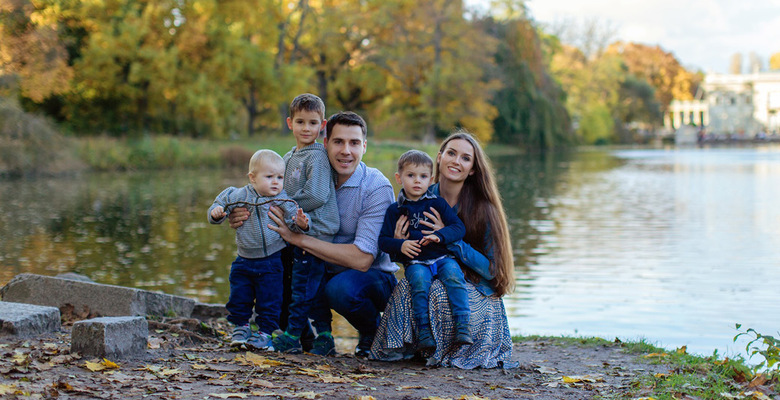
Entrepreneur Irina Kubiak, concept-creator and founder of the trilingual Parentotheca Project, researches conscious parenting and science-based child-rearing alongside her husband Dawid. She’s also a Medium Project participant and the mastermind behind the Wise Parent Association, where she is a speaker. As the mother of three boys, her knowledge has been bolstered by practical experience. The whole family now lives in Richmond, London. Kommersant UK asked Irina to share her main insights with our readers.

Your Parentotheca blog states scientific knowledge can be used to ‘regulate’ parenting. Could you tell us about the most important practical insights you have gained from the books you've read?
As parents, we often rely on experience rather than knowledge. In Rusophone discourse on parenting, there is always an emphasis on parental instinct, but I believe this instinct does not exist. Instead, this is simply a repetition of experiences from our childhoods which include many mistakes. Over the last 30 years, scientists have been very interested in how children develop, study, acquire various skills and interact with the world around them. There's already been a lot of research on the subject. A major impetus for this study has been the growing number of mental illnesses and psychological disorders amongst children and adolescents, even though it had previously been believed that the first signs of depression appeared only around the age of 20. Current research is trying to understand what factors, including those over which parents have control, affect the mental health of children and what parents and society can do about this. Additionally, over the last three decades, there has been a lot more research into the brain. Overall, the progress of neurobiology and neuropsychology has given us a better understanding of how our brains develop, how the process of motivation works and how skills are acquired. We now have a better understanding of the factors affecting human behaviour. Much research has also been done into the adolescent brain. While it had formerly been thought these were almost adult brains, simply with fewer functions, now scientists have a better understanding of the processes which occur within them.
The main practical insights which I've gained and which work for me concern parenting styles. By the 1970s, these parenting styles had already been identified and researched. When observing children of school and preschool ages, Diana Baumrind identified approaches to parenting associated with different outcomes in children. She named the style she associated with the most positive outcomes overall ‘authoritative’. What does it mean to be an authoritative parent? These parents are warm, supportive and actively involved in their children's lives, yet they encourage independence, enforce strict and proportionate discipline and they also have high expectations. In the 1990s, Laurence Steinberg, considered a leading researcher on adolescents and children, applied this child-raising theory to adolescents and essentially expanded the definition of authoritative parenting. This is important, because, currently, much is being said about ‘gentle’ parenting, while the second element, discipline and teaching skills, is not prioritised. This may lead to ‘permissive’ or ‘laissez-faire’ parenting when parents allow their children everything. The second extreme is when parents focus solely on discipline and expect results from their children. This approach does not make children feel happy. As well as warmth and support, it's important for there to be boundaries when raising kids. This is probably the core of my child-raising philosophy.
Another conclusion which had an enormous influence on my parenting was that children need to feel in control of their own lives. When they realise it’s up to them what happens, they become focused, determined, optimistic and attentive to the matter at hand. This feeling of control is the antidote to the toxic stress which can have a harmful effect on the child’s ability to study, mental resilience and later life. When a child feels in control, they have more chance of developing internal motivation. Hundreds of studies have shown that a feeling of control, even more than a real ability to handle specific situations, is linked with practically everything we would like to see for our children; physical and mental health, self-motivation, academic success and later, professional achievements. So, from the earliest possible age, it is important to give children the chance to experience this feeling of control. Give them the opportunity to make simple choices for themselves, encourage decision-making, teach problem-solving skills and develop a growth mindset.
The third insight is what we encounter every day as parents. Often, parents interpret a child's behaviour as if it were done out of spite. Actually, as scientists researching the development of children's brains tell us, often when children react emotionally, play up or become hysterical, it's because the brain functions allowing them to control behaviour and emotional reactions are still not well developed. This completely changed how I react to children's behaviour. The task of parents is to help kids master and develop self-control and problem-solving skills. Self-control continues to develop throughout all of childhood and any difficult moment is always an opportunity to develop these skills, not a cause to become angry with the child.
Many believe that a scientific approach to upbringing only works with ‘gifted’ children and that authoritarian methods are needed to deal with ‘difficult’ children…
Temperament is important, but I have three children and they are all different and each one requires their own approach. For instance, one of them is inclined to anxiety and often views things negatively. When we sent two of them to the same summer camp, after the first day my eldest said that it had been the most terrible day of his life and my youngest said that it had been great; he’d played and everything had been super. Still, much scientific research into parenting styles, feelings of control and related matters has shown that the required approach does not depend on the child's temperament. Yes, every child needs warm support and unconditional love, irrespective of their temperament. If a parent simply says “Only authoritarian methods work with our kid”, I just have to talk it through with them. There is a selection of tools which you have to try out with your child one by one. You’re bound to find something eventually which will help set their growth on the right path.
What's your view? Can modern parents use scientific knowledge to correct the systematic mistakes made by their parents and grandparents? I feel our generation had quite a traumatic upbringing. How can we break this chain of errors and not pass it on to our children?
I don't know a single parent who would consciously choose to spoil their child and make things worse for them. Our parents, for instance, tried to make things better using the knowledge and resources they had at the time, but it seems these influences led them to bring us up with a certain lack of empathy. Our task is not to focus on the past but to try to understand their choices by using the skill of perspective-taking to understand the circumstances in which our parents lived. Many of them were children themselves; my mother, for instance, was 18 when I was born and even from a neuroscience standpoint, this is still childhood. Naturally, my grandparents stepped in to help. For this generation, raising children was about repeating their own experiences from childhood. When we reflect on our formative years, we understand that our parents and grandparents did not bring us up using a conscious strategy, so, first of all, we should let go of our grudges and secondly, we have to focus on our needs for the future. So rather than correcting anything in ourselves, we need to think about what to do as parents to avoid repeating their mistakes.
I would probably start by asking myself these questions: “What adult would I like to cultivate in my child? What relationship do I want to have with them when they grow up? What values do I want to give to them? What skills do I want to teach them?” and then the most important question: “What kind of parent must I become to raise such a child?”. When you have set a goal for the future, you don't focus on what happened in the past. Instead, you head towards your aim and adjust your path as a parent accordingly. Again, everything begins with awareness. Parenting is not about children, it's about our own parents and our personalities. We need to begin by working on ourselves, on our reactions, emotions, behaviour, habits, and inner integrity and work on our relationships with ourselves.

Although we tend to compare children with one another, most psychologists specialising in parenting state that individuals must be compared with how they were in the past. The child’s personal growth must be considered separately, rather than in the context of other children. If I suggest this to people of the older generation they react by saying: “Without healthy competition, children won't achieve anything”. In your view, who's right?
Clearly, when we parents compare our children with others and say that healthy competition is necessary, we're just scared that our child will struggle in today’s world and that they won't be able to compete with other adults for work. But comparing them to some notional ‘John’ or ‘Vasya’, won't help your child to be more successful, in fact, it might do quite severe damage to your relationship with them. The impulse behind your parenting style should not be a fear that your child will not achieve anything and be unsuccessful, instead, it should centre on the ultimate aim of what we want for the child. What should we do to ensure our child becomes capable? The answer to this question should guide our next steps.
I'm a proponent of the maxim: ‘Do your best and forget the rest’. I always tell my children they have to invest themselves 100% in everything they do. We normalise mistakes. To me, it seems Russophone parenting culture does not forgive mistakes: marks are always written in red ink and work is crossed out. If we normalise mistakes, we will come to them from the standpoint of a growth mindset and children will learn lessons from their setbacks themselves and use them to help build their skills.
From a scientific perspective, if you would like your child to achieve success in life, there is the Angela Duckworth formula; talent times effort equals skill. When you have a skill, you need to make even more effort in order to actually achieve something. When we focus on skills, making progress and effort, children can develop these abilities. This is much more effective than making comparisons with other children.
It's also important to understand that success in life depends both on cognitive skills and on personality. We need to invest energy in developing children's cognitive skills and personality traits such as resilience, optimism and responsibility for their own actions. Every child has their own strengths. As parents, we must understand it's not essential for them to be the best of the best. If they have aptitude, say, for Russian language and literature, it's not the end of the world if they're not extraordinarily gifted in maths. It doesn’t reflect what they’ll be capable of in the future.
Last year, the national SAT exam was cancelled at my middle son Alex’s school, but they still assessed the children to understand what stage they were at. The results were not publicly announced, mind you, and when I asked why I was told: “So the children don’t measure themselves up against each other. Everybody progresses and learns at their own speed, so comparisons only lead to anxiety and affect self-esteem, resulting in a fixed mindset”.
Your children have grown up in Poland and Britain and you've also followed the upbringing of your four younger sisters and your friends’ children in Russia. Can you tell us of the key differences between these three education systems and say which of them suits you best?
At our school, I recently chatted with an English mum who mentioned a Russian girl, her daughter’s friend from another school. Somehow she had ended up at a birthday party where most people were Russian-speaking; of course, our community is always quite close-knit. She was shocked by how obsessed the Russian parents were with their children's studies. They had very high expectations in the vein of: ‘Study, study and study again’. In England, the approach is more relaxed, yes there are high expectations but there's no strong pressure on children and there isn't this idea that you need to study from morning to night. My children are still only going to primary school and I like the way the school emphasises learning through play. They give the children the choice of what they want to do, whether it’s drawing, modelling or reading. The children can choose for themselves; they don't have to sit there and do what all the others are doing. At the nursery in Poland, as in Russia, the approach is more "Now we're going to draw", or "Now we're going to make a cat like this" and they all sit there like minions moulding a cat. In England, there is less structure in primary education and they don't make them do what everyone else does. Of course, structure is essential in school, but all the same, in primary classes, especially at Key Stage One, there is a great focus on learning through play and craft projects.
Another major difference is the recently introduced syllabus for social and emotional education. The premise is to teach children the fundamentals of emotional intellect; the stress is not on IQ but on EQ. Children learn what friendship is, what assertiveness skills are [the ability to express your own point of view without transgressing other people's boundaries or resorting to extremes - editor] and how to defend their personal boundaries. This doesn't happen in Russia or Poland.
I also really like the idea of cross-learning. For instance, if they are studying ancient Rome, the topic doesn’t just come up in history, in maths they learn Roman numerals, in music, they learn songs about the Romans and in art, they make shields for Roman legionaries. So instead of just learning about it once and moving on, it intersects in all the subjects.
I also like the emphasis on teamwork at English schools. Small children don't sit in pairs at their desks, they always work around a large table, although sometimes, they do break them up into pairs; they have reading partners for example. They teach them how to work in teams. Also, English schools now put great importance on a growth mindset; they stress that each mistake is an opportunity to learn something. Mistakes are normalised in this system, whereas in Russia it seems kids have no right to make mistakes.
During break time, children here run around outside. This may seem a small detail, but, at our school, only the older classes were allowed out during recess, so we were cooped up indoors all the time. They let children out onto a playground here, where they run around burning off all their excess energy and then they come back for lessons. Research has shown this is very important for cognitive processes in our brains. Children who are able to run around and be physically active absorb and retain information better, facilitating their learning.
Also in English schools, there is a national curriculum. This sets out what must be studied each term, but it gives teachers leeway on how to deliver the information. They don't necessarily have to strictly follow the textbook. There are whole internet portals for teachers where they can choose material and select different teaching aids depending on the pace of the class.
I would also like to ask about bilingual kids. Your children speak three languages. Many parents try not to burden their children with unnecessary foreign languages, as they are concerned about delaying the onset of speech or that they will end up struggling with all of them, while others, by contrast, create bilingual environments at home artificially. Why should bilingualism be developed and how is it better to do this?
This depends on the child, but as far as I’m aware, delayed speech isn't usually due to how many languages a child speaks. Often, parents ascribe a delay to an attempt to introduce a second or third language, but there may be completely different causes. We have three languages at home and they complement each other quite seamlessly. We follow the principle of OPOL (One Parent, One Language), so I speak to them in Russian, my husband in Polish and the language around us is English. When we went to live in Poland for three years, it changed a little. Polish became the social language and English became the school language. I didn't see any delay in development but it was interesting to see that until the age of three, the children did not understand they were speaking three languages, as for them, the different vocabulary was all like synonyms are for us. So, at first, they thought it was all one language and at roughly the age of three, a light went on in their brains and they realised there were three separate languages. A colleague told me that when her child realised that their mother and father spoke different languages, they started to translate for them although both knew each other's languages. I know of parents who are fanatical about their native languages and send their kids to Russian Saturday schools (or Polish, or Greek or whatever) and they only read books to their children in their native language. Yes, that works in many ways, especially with smaller children, but later on it's difficult to follow this system.
It has been scientifically proven that bilinguals develop executive brain functions better, they have a more creative approach to problem-solving, are able to look at problems from different perspectives, have more focus and control of their attention and are better at switching from one task to another. What's more, bilingual children have more developed working memories. From the standpoint of long-term positive outcomes, scientists have established that bilinguals suffer cognitive degradation more slowly and are less vulnerable to dementia and illnesses such as Alzheimer's. So I believe that parents should raise children bilingual if they have the opportunity.
How can this be done? First of all, you have to start as early as possible, and not worry about delayed speech (if this does happen, it's better to enlist the help of specialists). It's important to create the opportunity to interact with the language as often as possible, although this is very hard to do when you live in a different country. If for instance, Russian parents living in Russia try to teach their children German, the child must have contact with the living language so they understand that it's not just some kind of secret language which their parents are trying to talk to them in, but a real living language which others use, not just adults but also children.
When our children were studying at an English school in Poland, I noticed that, although the teachers were native speakers, the children were also learning from each other. My eldest son lost his English accent after two months because he had picked up a Polish accent from his peers. He started to speak English with a strong Polish accent. If there are several children in the family, the oldest child, as a rule, speaks the parents’ language best and the younger ones are less competent, because, amongst themselves, they speak the language of play. Now, my children speak to each other in English, although they can answer me in Russian and their father in Polish. The youngest finds it much more difficult than the others to answer me in Russian, but I feel the most important thing is not to pressure the child. Learning languages should be fun for them and not work.

The atmosphere within the family shapes much of our personality, but what is to be done if a child faces bullying, toxic relationships, or parasitic friendships outside the home, whether at nursery, school or on a sports team?
Unfortunately, bullying and toxic relationships are part of life. Bullying was always present in our childhoods and will also affect our children and grandchildren. Sooner or later, kids encounter it. Often parents try to protect their children and make a fuss, but I feel that if at some point, a child comes to you and opens up about bullying, the priority is to hear them out and understand what’s going on, rather than immediately mounting your warhorse and charging off to save them. Of course, everything depends on the situation. In some instances, parents have to get involved, while in others the best way to help a child is to let them find the strength within themselves to deal with it independently.
As a preventative measure, parents can teach children assertiveness skills so that they can stand up for themselves, but not violently. It shouldn’t be in the form of “Give him a good walloping in the bogs as a taste of his own medicine”, but you should aim to give the child the confidence to say “No” and reply firmly to their bullies that they won’t put up with being treated in this way. As a rule, Bullies lack self-confidence and target weaknesses in others to make themselves feel stronger. When you explain this to the child and let them develop assertiveness skills such as the ability to show bullies that they are actually strong and can stand up to them, you equip them to respond robustly. Then, if the abuse is not severe, the problem of school bullying may resolve itself of its own accord. But sometimes, of course, there are serious cases affecting the child's mental health. In English schools, there is a whole system for combating bullying to deal with these cases, so you have to get the school involved and let the teachers sort it out.
It's also important for parents to help children develop healthy self-esteem. We can't get anywhere without that. It's the same with toxic relationships, assertiveness skills and self-image. I feel there should be a system of values at home. This gives a child a framework which will help them take a step back before it’s too late and realise that certain friendships aren’t leading anywhere. It also helps children to find the strength within themselves to respond to bullies.
Often parents say: “Make friends with that boy, he’s nice, but stay away from that one, he’s bad”. We always have opinions about everything and we try to control things but children usually react as if we were dictating to them how to live. Parenting experts advise parents to learn how to coach and direct conversations: “Why are you friends with that boy? What qualities attract you to him? How would you assess his actions and how do those actions affect others? What do you think about that? Is it a good friendship?” Parents can ask these questions to stimulate the child's mental development. Afterwards, the child will think things through and conclude that it's not the most productive friendship and that there is probably somebody else they can be friends with who has more positive patterns of behaviour. But having these conversations with children and actively listening, without pressuring them or imposing your own opinion is an art. You have to push them gently with your questions so they come to the conclusions for themselves. Once again, the age of the child plays a role. It's easier to do this with younger children. Teenagers, however, are more dependent on their peers and friends, who are always more important than their parents in forming their opinions. This is also linked to the development of the brain. So with teenagers, our task as parents is not to control everything but to exert influence. Again, our parenting style is important when doing this; how well we can build a relationship with our child and how much warmth and support we can give them. We help them set boundaries and instil the right values and norms of behaviour. If we have a culture at home of how we usually behave and an understanding that anything that transgresses this must be discussed, then as a rule, children come to the right decisions by themselves.
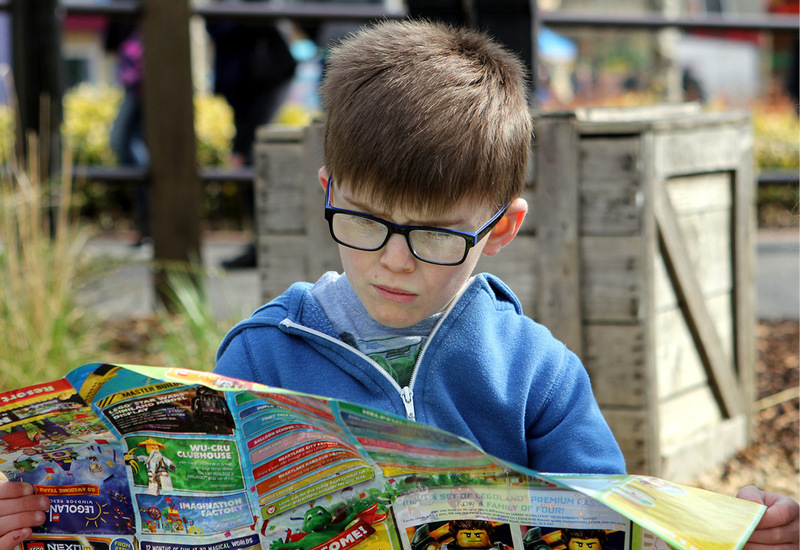
How should we go about choosing hobbies? Naturally, some children set their sights on becoming athletes or attaining some other profession and so choose their interests very early in childhood. Many others, however, dabble in different hobbies and then drop them, maybe because they seem harder than they first appeared. How can we help children choose hobbies that develop their skills as well as being fun?
Overall, many scientists now believe that early childhood is a time when we parents have to encourage children to try as many different things as possible. At that age, kids explore interests like ballet or drawing, trying different activities, and that’s perfectly normal. When they reach their teenage years, roughly at the age of 12 or 13, children begin to feel passionate about their interests. Their brains are transitioning to a new stage of development where they can focus. Before that, as a rule, the main recommendation is to try as many different things as possible.
Again, much depends on the child's temperament. For instance, my oldest son loves swimming and, in England, they teach them at different levels. The first level is when they learn not to drown. The second is when they can do breaststroke. He had reached the final level when the instructor came and said: "You’ve got talent, you’re great! Why don't you go to the sports club where they teach real swimmers?". He went to the initial selection and they said: "That's great, but if you wave your legs around like that you will be disqualified in competitions". Max came home and said that he wouldn't swim anymore and that he had never liked it. It took me two weeks to untangle everything, sort things out and help him overcome his limiting convictions; he’d decided he wasn't good enough for the sports club.
Every situation is different. Why does your child want to quit? Have they lost interest or has an instructor made a negative comment that they couldn't deal with? Here, the parent’s task is to understand why they don't want to go to the club. My Max, for instance, really wanted to play the violin. He liked everything about it. He did it for half a year and then he said the music wasn't right for him. OK, try something different. But at the same time, we have a rule: never quit on a bad day, when something isn't working out. We have days when everything is going great, and there are others when it's hard and the instructor makes comments. It is at these very times that kids come and say "I'm not going to do this anymore" If they’ve just had a bit of a rough day, I suggest sticking with it to the end of the term, year or the subscription you’ve paid for. Sticking with things until some kind of finale is what builds a resilient character.
My middle son, Alex, has a classmate whose dad is an Olympic swimmer. He came and talked to the class and told them how he did his training and ended up going to the Olympics. Alex came to me on that day and said: “I want to be an Olympic swimmer” and that was that. Every day, he goes to swimming lessons and he is just obsessed with it. Now he's got a guitar as well and he actually sleeps with it.
Often, when it comes to sport, it's about realising parents' dreams. For instance, they might say: “I never had figure skating lessons but now you will be my Plushenko” and force the child to do it. When you read stories of athletes who lost their interest in their sport while still children but were made to keep on going to lessons by their parents, we see how many psychological problems people have later on, especially gymnasts and figure skaters. It's better not to do things this way. Look at the child and let go of your own ambitions. There are many things which you can do in life.
How can we help kids to choose things that will really be useful for them? For instance, what should we do if we would like to sign them up for a chess club because it develops the brain but they say: “I want to do hobby horsing”.
I believe you need to let kids do what they like. Often children can't find the motivation to take up an activity because we’re always pushing them, saying: “Don't go there, don't do that”. If you let them do what they like, this boosts their feeling of control and there is stronger internal motivation to do other things in life. There is a very one-sided perception of success in our culture; for instance, if you are an engineer, or you know English or you're a mathematician then you have achieved something. But there are a plethora of other ways to achieve success in life, not necessarily linked to the traditional career options. One of the main tricks of positive psychology is that if someone is doing what they love, their heart is drawn to and it lets them express a facet of their personality, there's no need to pick them up on their weaknesses. It's better to let them focus on their strengths. Then they will have more chance of achieving success in the future. So parents just need to let go of their egos: if their kids want to do hobby horsing, let them go. What would help parents in this situation is to understand what skills the new hobby will help the child acquire. In this instance, responsibility skills, as they'll need to go to lessons on time, as well as physical coordination skills. When we focus intently on an activity, our brains work more intensively so, if a child goes to hobby horsing, then it'll help them to study better.
Could you name five books which are recommended reading for people who want to bring up happy and successful children?
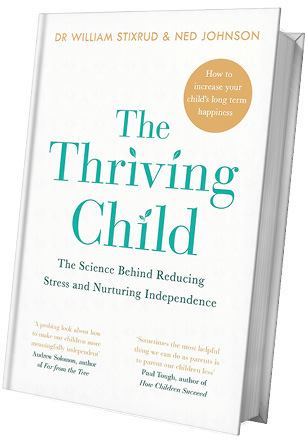
Probably the first book is The Thriving Child by William Stixrud and Ned Johnson. The authors are a neuropsychologist and the founder of one of the largest tutoring companies in America; the book discusses what exactly is important for children, how the feeling of control affects their ability to deal with anxiety, what science says about how children achieve success and how parents can help children to develop the necessary skills of stress-resilience. This book is important both for the parents of small kids and older children.
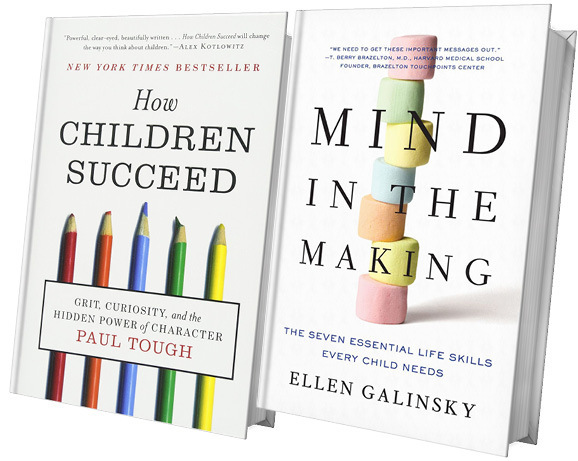
The second book is How Children Succeed by Paul Tough. Paul Tough is a journalist who has compiled all the scientific research on what drives children’s success in later life into one volume. It's a very useful book as it changes your perspective and concept of success and of what is really important in life. Mind in the Making: The Seven Essential Life Skills Every Child Needs, by Ellen Galinsky, is in a similar vein. Reading it is quite hard going, but still, it summarises all the research on how children develop the skills which later affect their success in life. What's more, the author suggests effective strategies on how to develop these skills, so I go back to this book very often.
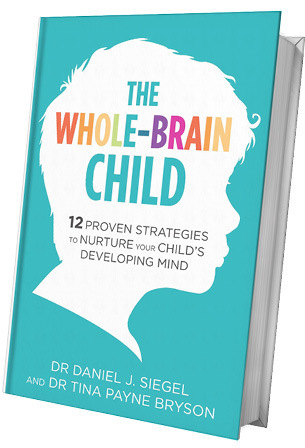
The fourth book is The Whole Brain Child: 12 Revolutionary Strategies to Nurture Your Child's Developing Mind by Daniel Siegel and Tina Payne Bryson. Dan Siegel is a neurobiologist and all his books on parenting are fantastic but this one in particular helps parents to understand how a child's brain develops: in very simple words, the author explains what parts are responsible for what functions and how the parents can help the child to develop an integrated brain. Many of the practical strategies from this book are applicable to everyday life as a parent and will help you withstand the most terrible moments of children's tantrums and irrational behaviour.
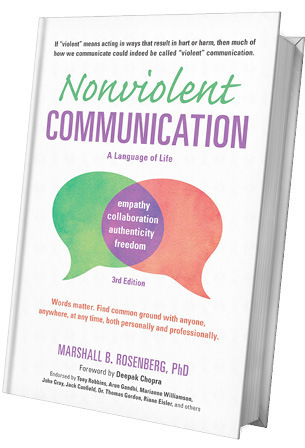
Finally, the fifth book is not about parenting as such. It's called Nonviolent Communication by Marshall Rosenberg. This book is about effective communication skills; it teaches you how to build better relationships with your child, partner, and those around you. I think that if everyone read this book and actually put the knowledge from it into practice in their lives, the world would be a much better place. Personally, this book helps me a lot, it's very useful and relevant in all spheres of life.






